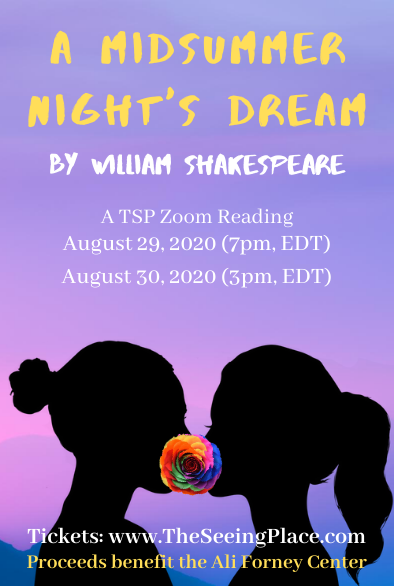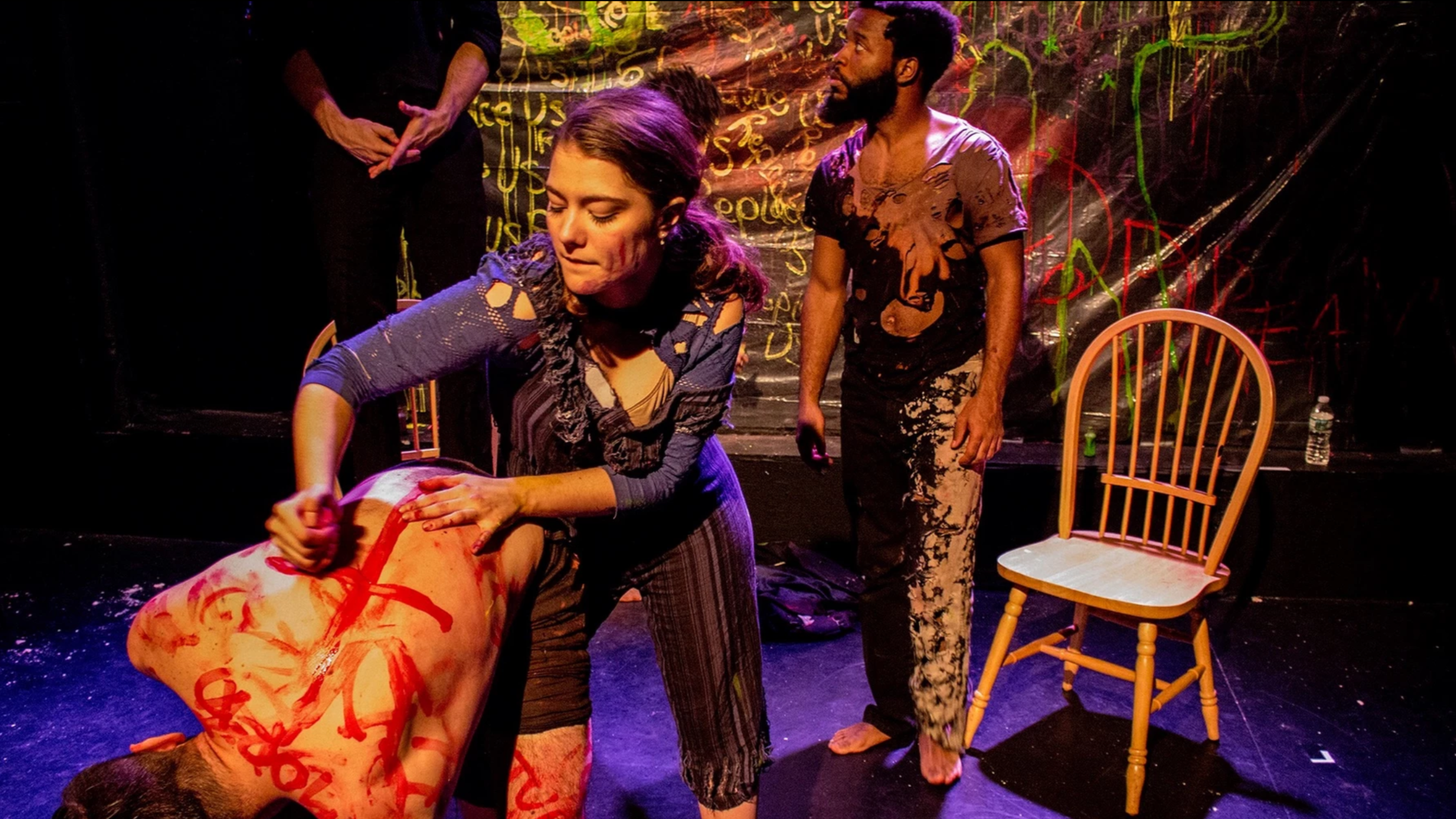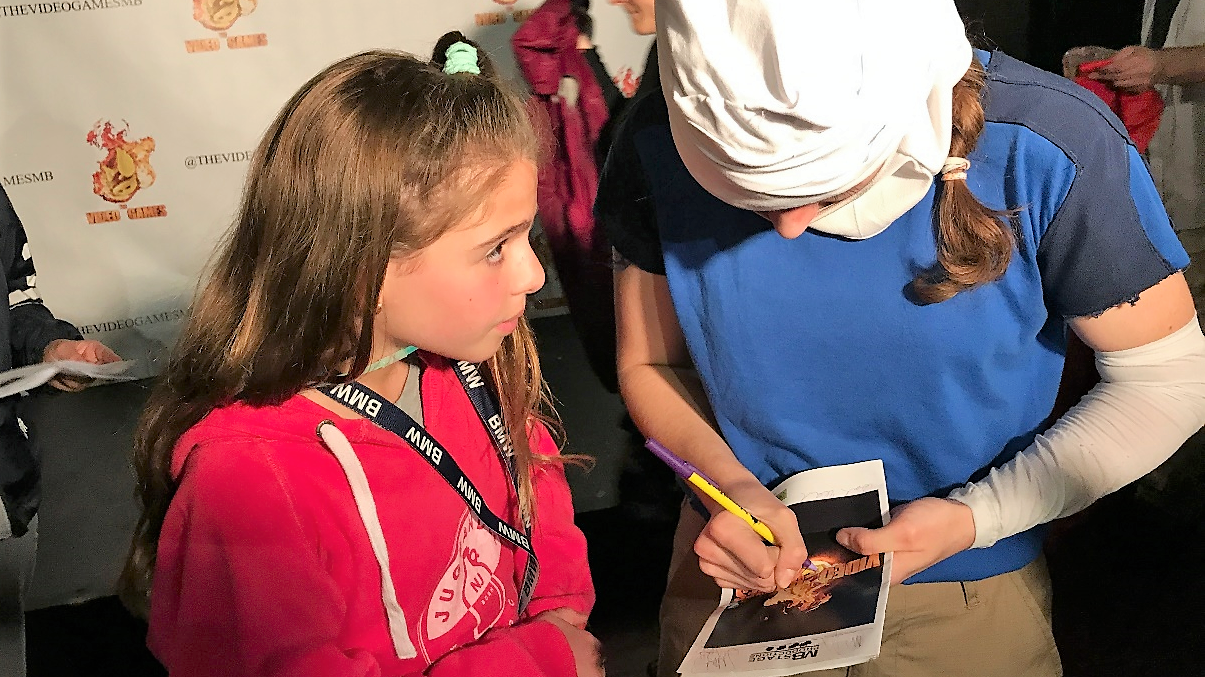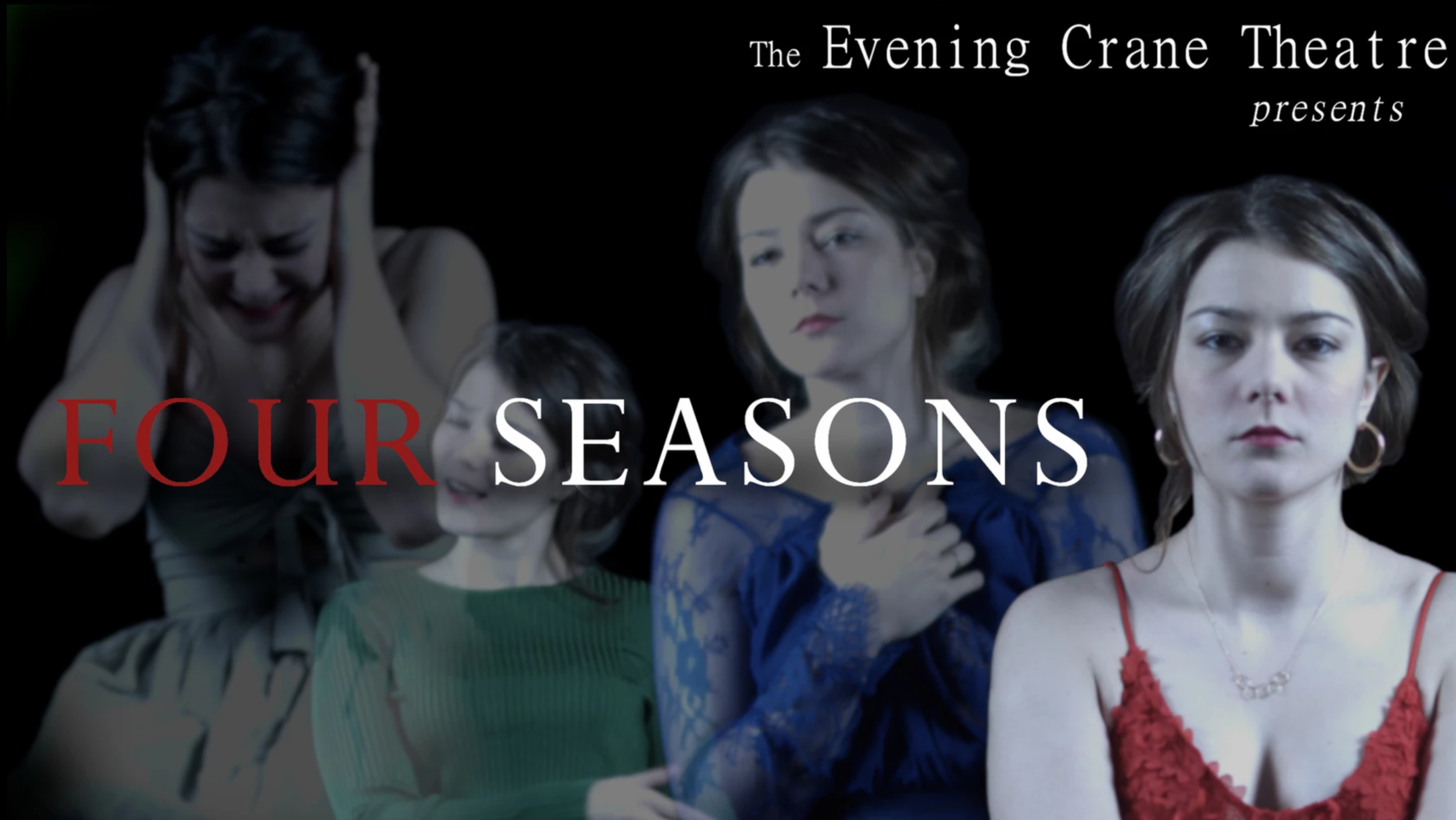
Weronika Helena Wozniak is an extraordinary talent. She’s an actress and dancer based in New York City and a regular Off-Broadway performer ever since her graduation from Lee Strasberg Theatre and Film Institute in 2016. She is currently in the production of “A Midsummer Night’s Dream” with a critically acclaimed theatre company The Seeing Place. She is also in production for “The Evening Crane Theatre’s” Spyglass Seven for The International Edgar Allan Poe Festival and will appear at the festival for a second time running, this time on film. On September 14th Weronika started her own radio program in collaboration with Polish radio, Nasze Radio in New York about culture and entertainment.
Weronika Helena Wozniak is a strong advocate for LGBTQIA+ rights. She supports the BLM movement and the Ripple For Change Award, which was created to support non-profit organizations, who make significant contributions in their communities. She has collaborated in raising over $3000 for Black Theatre Network and Ali Forney Center through online theatre.
Weronika Helena Wozniak is currently represented by MMG Talent Management.
Please give an autobiography of yourself?
Weronika Helena Wozniak (WHW): I made my first camera appearance in the famous Polish TV Show, Pierwsza Miłość as a guest star back in 2014 when I was in high school. I starred in only 2 Episodes, and that was my first acting experience. I went onset with a vague idea of what I would be doing on “Pierwsza Miłość”, but surprisingly I felt comfortable. I had come from a dance background and I was accomplished doing it internationally. I kept training until I felt there was something missing. It took me some time to notice acting because where I come from theatre and film are not prevalent. It wasn’t until my participation in an Intensive Winter Theatre Workshop at Warsaw’s Teatr Baza (Baza Theatre), that I decided to pursue acting full-time. I then enrolled in the Lee Strasberg Theatre and Film Institute. I realized that studying Method Acting in the heart of modern American theatre is a natural calling.

What acting technique do you use?
WHW: At Lee Strasberg, I looked at acting from a Psychological point of view, and it fascinated me deeply. After graduating, I continued to use Method Acting. The art is, however not limited to one single technique. I have been fortunate to work with many teachers and coaches over the years, and I apply this technique in my personalized way. Currently, I am lucky to be a part of a theatre company that trains together weekly. The Seeing Place’s producing Artistic Director Brandon Walker was mentored by Lee Strasberg‘s protege, David Gideon, and is our guide and coach through the Strasberg’s sensory work.
You are an experienced actor, how much work: creative, energy or focus do you put into your scenes?
WHW: Actors are no different from Musicians who need to practice every day to stay on top of their game. Once I take on a role, I inhabit it in everything I do, even when I’m not rehearsing. I am using every moment I have to go back to my notes or run the script to get the scene into my body. I want to be constantly in connection with what I’m creating.
How does the work you do on one show, compare to another?
WHW: I think it very much depends on the ensemble and your scene partners. I worked on a devised physical theatre piece The Vandals, where the show was based on a close bond between actors. We developed it through rehearsal and with each iteration of the same show, we already had something to build on.

Another thing that differentiates work for me is the type of performance. In physical theatre, there is heightened space awareness. In the second iteration of the show, David Glover (my scene partner) and I had to perform an emotional movement piece in a massive pile of dirt covering the stage being tied to each other with a throbbing light on and make that work in a very intimate setting. It was difficult because not only did I have to take care of myself physically on stage, but also my partner.
Immersive theatre is different. In The Video Games (MB Stage, The Elektra Theatre) and Never Sleep Alone (The Public, Joe’s Pub) I felt particularly connected to the audience, because they decide on not only what I would say, but also the course of the show. My adrenaline rush peaks with shows like this. That being said, all stage work requires the same basic character analysis; the Who, What, Where, Why, and When.
Let’s take a show you’ve done, how did you prepare for such a role: the cast, the physicality, the terrain, the climate, weather, and the demands of the show?
WHW: The most complex preparation I have had was for The Video Games, Off-Broadway. It is also my favorite preparation. It was a highly demanding show that had a lot of different elements. There was dialogue interchanged with stage combat choreography. We were adapting different types of weapons. As soon as I got the movements down, I created the style in which my character would fight. The roles derived from characters in actual video games with high-energy, animated movements, strength, fitness, and agility. I had to keep working on these qualities to create the illusion of a superhero on each show. The improvisational aspect of this immersive required focus and attention. Some dialogue lines were set, but we were allowed to break them if we still finished the scene with the same resolution. I memorized the lines and then wrote a few possible scenarios for myself. Still, it wasn’t guaranteed that I would use the lines I came up with. Every time we rehearsed or did a show I came up with a new idea based on circumstances set by the course of the show. It was a never-ending process of creation.

Describe the most memorable character you played?
WHW: I will always remember Sonya from Southern Comfort (a new play written and directed by Paul Calderon) that premiered in July 2020. It presented the biggest accent-challenge I had yet faced. I had to discover a suitable southern accent for Sonya‘s character, I eventually settled for the Alabama accent. If it wasn’t for the Director’s support and faith in my talents and potential, I would never have been bold enough to explore the southern accent alone. The process made me fall in love with the role of Sonya and I set my mind to make it work perfectly. Sonya is a southern-belle gone-bad. On top of that, she is stubborn and blind. It took a wild ride to see it through and I am grateful. After the July show, the Alabama accent stuck with me, it is now my favorite accent, though I do Polish, Russian, French, and Standard American accents.
How do you create that character from a script into a person?
WHW: I like to discuss with the Director to be sure I aligned with the concept of his show; why we’re doing it? why is it relevant today? Next, I take a plunge into active research; I spend hours understanding (studying and practicing) my character emotionally and historically. The process rarely feels complete when I am done, it is always evolving, it is a moment I carry into the play or film.
During the research, I engage my imagination actively; I fill gaps in between the Playwright’s lines (mentally and vocally). The most effective preparation I enjoy is The Seeing Place’s Character Discovery. It is about discovering the circumstances and problems that the character encounters. In this ongoing and evolving space (physical, mental, and/or emotional) I make creative sensory “choices” to bring the character to life. The behaviors I create come from my personal life experience – this is how sensory work translates into my performance.

How did you stay fresh on a production set?
WHW: I am currently shooting Four Seasons and Spyglass Seven with “The Evening Crane” and it’s been a fun-challenge to transition these plays into the film and cinema especially because I have done them on stage. My way to stay fresh in-between “takes” is to keep relaxing and doing my sensory work even after the Director screams “cut”. As the crew is working on the next scene setup, I am actively working in the moment before the scene starts. That’s the best way to keep focused.
Explain one creative choice you took on stage?
WHW: In Four Seasons there are four (4) leading ladies. I play them all: Quiblah (Autumn), Claire (Winter), Erica (Spring), Willow (Summer). Michael Seebold’s stories are 19th-Century stylized and written in pentameter. Sometimes we forget that in a period piece the characters are still people with flesh, bones, and emotions. One of the most important choices I made in the show was to play the opposite of what I saw on the page.
Let me take Erica as an example. She is in an unhappy marriage and has loved someone else for years and that person is best friends with her husband. The dialogue lines suggest she is unhappy in her circumstances. On top of that, we have periodical savoir-vivre (to know (how) to live, french) to deal with. She is young and has had everything under control, including her lovers. While I created her backstory, I realized she is quite the successful femme-fatale. and I wanted to live up to that in my performance. I made a choice of being joyful, confident, and possessive. It changed the play completely and gave me a wider range of emotions to play with. I went for the unexpected and brought a wonderful dynamic to the whole scene.

What do you want most from a director?
WHW: I want clarity when he (the director) communicates with his actors during a rehearsal or performance. It affects the overall cast performance.
What advice would you give actors around the world?
WHW: Frankly, take risks. Keep on working on your craft, always be ready. Show up for work. Now, I know people hear that a lot, but the key is to stay consistent. Being an actor is a constant adrenaline rush and sometimes an excess of it turns info self-sabotage, fear, and doubt. We, actors have to work through all that.
The Coronavirus has taught us that the world is connected. It’s proof of how easily we can communicate from remote parts of the world to create theatre, film, TV, and learn from each other, against the odds.
Tell us what you think of the interview with Weronika Helena Wozniak What do you think of it? What ideas did you get? Do you have any suggestions? Or did it help you? Let’s have your comments below and/or on Facebook or Instagram! Or join me on Twitter.
Follow Weronika Helena Wozniak on Social Media
Website
IMDb
Facebook
Twitter
Instagram
Vimeo
Richard Green Documentary, ‘I Know Catherine, The Log Lady’: Premiere in NYC, LA May 9th
Lynchian Doc I Know Catherine, The Log Lady Makes Hollywood Premiere 4/17, Rollout to Follow
In Camera by Naqqash Khlalid Launch on VOD April 29
Naqqash Khlalid’s Directs Nabhan Rizwan. In Camera stars an EE BAFTA Rising Star Award Nominee.
2025 Philip K. Dick Sci-Fi Film Festival Award Winners Announced
Vanessa Ly’s Memories of the Future Awarded Best PKD Feature
Dreaming of You by Jack McCafferty Debuts VOD & DVD for April Release
Freestyle Acquires “Dreaming of You” for April 15th Release
Hello Stranger by Paul Raschid set for London Games Festival & BIFFF
The film Is set for an April 10th Premiere at The Genesis Cinema in London (LGF) and BIFFF
Daydreamers Official Trailer by Timothy Linh Bui: Released by Dark Star Pictures
Daydreamers Vietnamese Vampire Thriller – May 2nd release









